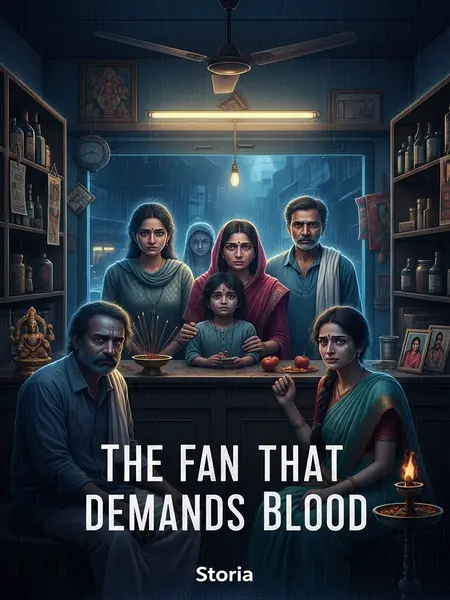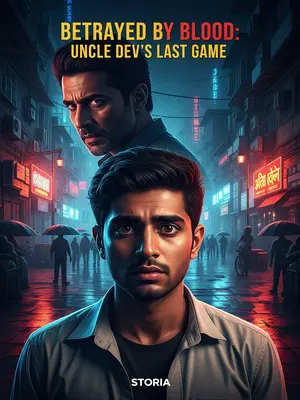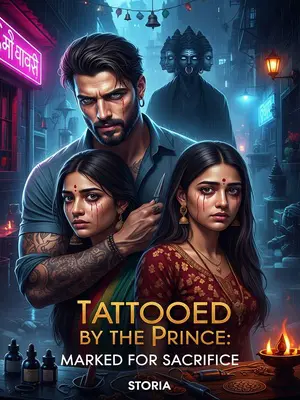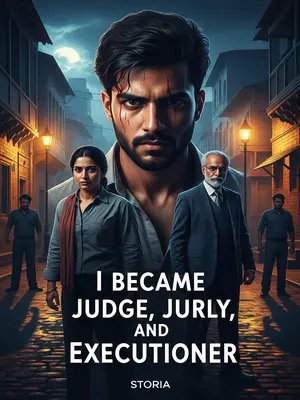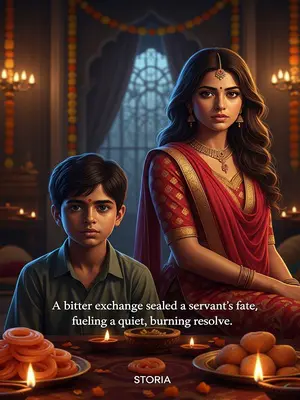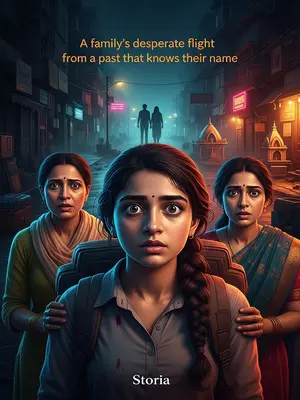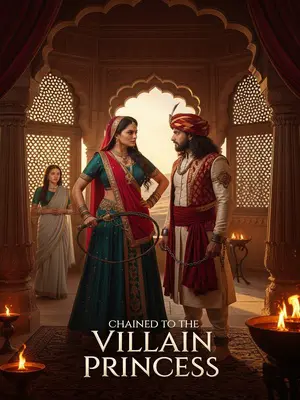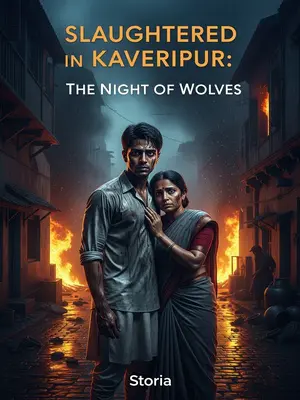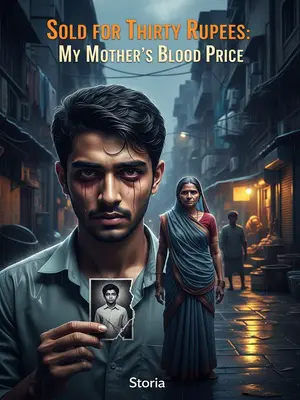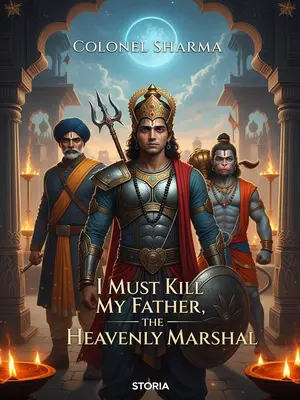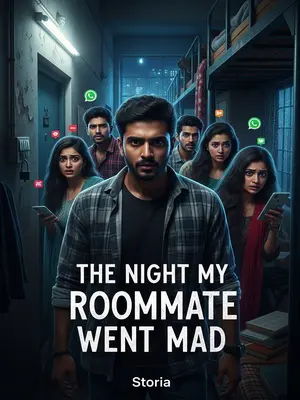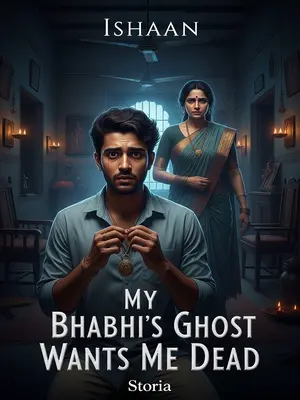Chapter 2: The Storm and the Fan
As soon as I finished, a loud thunderclap exploded outside.
The power flickered, and for a heartbeat, the shop was lit only by the blue glow of a neighbor’s inverter bulb across the street. The thunder was so loud the fan above buzzed and shuddered, glass jars trembling on their shelves. I saw ripples in the bowl of water Grandmother had set for the ritual, as if the whole world was shivering.
It felt as if the fan might fall at any moment.
I remembered the news, the stories whispered by the chaiwala outside—how the fan was cursed. My throat went dry, and I clutched the edge of the counter so hard my knuckles turned white.
The fan was made of heavy iron. If it fell, it could kill someone in an instant.
This was the same fan that had survived three generations—Grandfather always joked, 'Yeh fan kisi ko bhi akal sikha dega,' never knowing his words would come true. For weeks after the accident, no one dared to touch the switch; neighbours whispered, and the shop’s shadow seemed longer.
I stammered, 'Uncle, kahin aur baith jao. Fan ke neeche mat baitho, woh theek nahi hai. Pehle bhi gir chuka hai.'
I said it quickly, hoping my words would keep him—and me—safe from whatever darkness hovered above.
The fan in our shop had fallen several times, but by some miracle, had never struck anyone since that day.
Each time, Grandfather would call the neighbours. They’d mutter about bad omens and cheap screws, then help him put it back, their faces grave in the flickering tube light.
Replacing it would be expensive, and Grandfather always resisted.
He would grumble, 'Naya fan? Arrey, ek hazaar lag jayega! Yehi theek hai,' though worry lines dug deeper into his brow each time he looked up at the ceiling.
Instead, he added more iron chains to secure the fan.
The chains clinked in the wind, a strange, unsettling music. Sometimes, late at night, I imagined they were ghostly anklets rattling through the darkness.
We rarely used the fan unless it was unbearably hot.
Only during peak May heat would Grandfather flick the switch, muttering about 'Bombay ki garmi,' as if invoking a sacred ritual.
The man’s gaze lingered on me, his eyes strange and calculating, as if plotting something.
His lips curved into a smile that didn’t fit his face, making the small hairs on my neck stand on end. He drummed his fingers on the table in a slow, unnerving rhythm.
He said, 'Kuch nahi hoga, main nahi darta. Bacche, meri baat sun—fan chalu kar de. Yeh kapde mote hain, garmi se jaan ja rahi hai.'
His voice was slick with fake sweetness, the kind that makes you want to run and hide behind your mother’s saree. But my feet wouldn’t move.
Even as he smiled, his expression remained sinister.
It was the kind of smile that haunts nightmares—too wide, hiding something rotten. I found myself wishing for Grandfather’s steady hand on my shoulder.
I always sensed something was wrong with him, but I couldn’t name it.
He seemed to belong to another world, the kind Grandmother warned me about during power cuts, when she whispered stories of restless souls.
When I stayed silent, the man stood up.
He rose slowly, chair screeching back. The light bulb flickered, casting strange shadows across his face.
I instinctively stepped back two paces, heart pounding so loud I was sure he could hear it. My hands turned clammy and a half-formed prayer slipped through my lips.
The man wasn’t tall. Even standing, he was still a little distance from the fan.
His shadow stretched long across the tiles—thin, wavering. For a second, it looked headless, and I blinked hard, trying to clear the vision.
He said, 'Tum nahi chalaoge, toh main khud chalu kar lunga.'
He brushed past me, a chill clinging to the space he left behind.
He strode over to the switch.
I watched, frozen, as he reached for the wall, each step heavy, as if something unseen weighed him down.
He flicked the switch. The click echoed like a gunshot, and for a moment, everything—the rain, the thunder, my own breath—went silent.
The fan shuddered violently, shrieking as it spun, metal grinding like rusty plates. Even my cousin upstairs paused the TV, yelling, 'Kya awaaz hai yeh?'
It was a sound that made my teeth ache, as if the air itself was being torn apart.
Even the cockroaches scurried for cover. I saw Grandmother peeking from the kitchen, her eyes round as two-litre steel lotas.
The man settled under the fan, wiping sweat from his brow, even though the room was chilly. 'Kya garmi hai, bhai,' he grumbled, as if only he could feel it.
A cold sweat broke out on my back.
I wiped my forehead with my sleeve, wishing I could disappear. The old plastic clock ticked loud and slow, each second stretching longer than the last.
Two years ago, the second son had said the exact same thing.
I remembered it all: the laughter, the jokes, the blur of the fan’s blades—and then the scream, the blood, the chaos. My hands shook, clutching the counter for support.
I was so frightened my legs turned weak, scalp tingling, throat parched.
A strange numbness settled over me, as if I was watching from far away. My knees knocked together, and I bit my tongue to keep from crying out, remembering every ghost story Dadi had told me during power cuts.
The man seemed to sense my fear. He looked at me and asked, 'Bacche, kya hua?'
His voice was suddenly soft, almost gentle, which only made it scarier. I looked away, afraid to meet his eyes.
My voice trembled, 'K-kuch nahi...'
I tried to steady myself, but the words came out cracked and dry. I rubbed my palms on my trousers, trying to stop the trembling.
A brilliant flash of lightning filled the room.
The fluorescent tubes sparked, flooding the shop with harsh white light. The old Godrej cupboard in the corner shone silver for a moment.
In that flash, I saw the man cast two shadows—one his own, and the other, headless.
I nearly bit my tongue to keep from crying out, remembering every ghost story Dadi had told me during power cuts.
When the lightning faded, I was shaking all over, palms slick with sweat.
The old beggar was right—the second son was still in the shop.
His warning rang in my ears: never look back, never speak of what you see. My eyes darted to the red cloth fluttering in the wind, as if it too had seen the ghostly shadow.
Seeing me dazed, the man looked at me with that same sinister half-smile, his expression eerily like the second son’s.
For a moment, it was as if my uncle had come back from the dead and was sitting right there under the fan.
I tried to look away, but my gaze was stuck, held by some invisible force. My breathing quickened, shallow and rapid.
The man’s voice sharpened, 'Bacche, kya dekh raha hai? Kya dikha tujhe?'
A cold wave passed through me. I whispered, 'K-kuch nahi...'
Old mohalla wisdom rang in my ears: even if you see a bhoot, never admit it. Pretend you saw nothing, or it will follow you home. My voice barely rose above a whisper.
Dadi’s words echoed: 'Beta, agar kuch ajeeb dikhe toh bas Om Namah Shivaya bolna, chup raho. Kabhi unse baat mat karna.'
If a bhoot knows you’ve seen it, it will come after you. I was certain the man could see my fear.
